
The 4th album on Another Timbre from a series of pieces by composer Antoine Beuger, each acknowledging a cultural or intellectual figure, here titled for philosopher, musicologist, educator and one-time member of the French Resistance, Vladimir Jankélévitch, represented by Beuger in a large dramatic work performed by the Apartment House sextet.
In Stock
Quantity in Basket: None
Log In to use our Wish List
Shipping Weight: 3.00 units
EU & UK Customers:
Discogs.com can handle your VAT payments
So please order through Discogs
Sample The Album:
Antoine Beuger-composer
James Opstad-double bass
Mark Knoop-accordion
Heather Roche-bass clarinet
Mira Benjamin-violin
Joe Qiu-bassoon
Bridget Carey-viola
Click an artist name above to see in-stock items for that artist.
Label: Another Timbre
Catalog ID: at168
Squidco Product Code: 29864
Format: CD
Condition: New
Released: 2020
Country: UK
Packaging: Cardboard Gatefold
Recorded at Goldsmiths Music Studios, at Goldsmiths College, in London, UK, on August 19th, 2020, by Simon Reynell.
Discussion between Antoine Beuger and composer Ian Power
Below are edited extracts from an extended discussion between the composers.
IP: Can you describe how you work - your process for coming up with an idea for a piece or working on a piece? What are your mental processes, but also what are your physical processes or routines?
AB: For quite some years, I'd never say that I'm working on a piece, because it really doesn't feel like that. To me that feels similar to a pregnant woman saying that she's 'working on a child'. We laugh at that idea, but we don't laugh when a composer says he's working on a piece. But to me, it feels just as laughable, because what am I working on? It's rather a process whereby a piece seems to gradually reveal itself to me. And the work is mostly just being attentive, receptive. To me, rather than having an idea, it feels more like an idea has me. And whenever that happens, then the work I have to do - and it's a lot of work - is simply to do justice to the idea, or to let it open itself or impose itself as adequately or as respectfully as possible.
I think the main thing is to challenge the idea of what the creator does. It's really tied up with a male idea of creating. So in Christian theology, which has of course had a huge impact on our whole development for the past 2,000 years, there seems to have been, from very early stages, an urge to presume that the creator is creating out of nothing, and also that he knows exactly what he's doing. He comes up with a kind of a blueprint, or a score - it really is like a very contemporary music type of score. Nobody knows what it's all about, but everybody knows exactly what they have to do. Only the composer knows what is the real deal in the piece, so the composer/creator is omnipotent. He is prescient in every sense, and he comes to the musicians and says, okay, here's my score. And then they say, okay, tell me what you want. And he says this is what I want, and might give them a kind of job description, and it's usually a difficult job in which they can easily fail and make mistakes, but they are going to do their very best and use all their professionalism to do it. And then at some point then the piece is created.
In French they use the word 'creation'; the premiere is the creation of a piece. And this model, which is basically a centuries old theological model, still holds for the most part. And this is, I think, the reason why it's difficult to imagine women as composers or creators. They are able to give birth, but they're not able to create out of nothing. And so they are like matter, like nature. And this whole imagery that comes with women is also, of course, that you have to be very careful, very cautious, because they are seductive. They are drawing you into sin and into flesh.
And composers today, even young composers, think very seriously about themselves, and don't want to have anything to do with playing. Like they're not going to touch an instrument. That's not their job. Other people get paid for that. The job of the creator is not to get their fingers dirty or to engage their breath or engage their body. They speak their word, and then the job is done by others. And by the end of that process, something like a sonic surface will have been transmitted or conveyed to the listener from the composer/creator. The musicians don't really have any substantial role to play; they are not playing the music, they are performing the score. Or in Germany they now speak about 'realising the score'. That's what you do when you play a concert. You realise the score, and thus avoid the word 'play'. Nobody says "I'm playing this piece by Lachenmann". You don't 'play' Lachenmann. At best you perform a piece, or realise the score as well as you can.
IP: So moving to the CD, first of all, who was Jankelevitch?
AB: He was a Russian philosopher, but he grew up and lived in France.
IP: Can you give a snippet of one of his ideas that really strikes you?
AB: Well, for example, he says that music has no itinerary. It's not going from here to there to there, and then you arrive, but it's an unpredictable flow. It just goes. And I agree with that.
And then the other concept that I find incredibly appealing is the idea of, in French it's called [apparition disparaisante], 'disappearing appearance'. So something appears by disappearing. And that is something that I feel is very much applicable to sound in general, because sounds always appear and disappear. And often it's not really possible to say, is it disappearing right now, or still appearing? The disappearance and the appearance kind of overlap or become indiscernible. And this connects in philosophy with the concept of the event. The event being something that, well, if it happens, it has just happened. You can't really grasp it, and you also can't go back to before the event. Once you're aware of it, it's already happened. But one event can be like captured by an idea.
IP: Which speaks to the usefulness of transcribing an event in that sense. . .
AB: We can't transcribe events. We can't invent them or design them. We can only hope that they might happen. So if I'm thinking all day about this new piece or this new situation, and then I realise something has shifted, something has happened, but I don't exactly remember when it came into my flesh, as it were. That is an event in that sense. And there is then no way of going back before it, but I know I have a lot of work to do, and there is going to be, what Badiou maybe calls this aleatory path of being consequential to what happened, like firming it up.
IP: What's one important thing for someone to know about the 'jankelevitch sextets'?
AB: Well it's from a series of pieces I composed, each for a different number of players, from two to twenty. And the number in each piece is really important, because everything that happens can only happen in a situation where there are, in this case, six people. Of course, there is much more happening than what emerges from this number, but the question I was really involved with in this whole series was how is it to play with this particular number of musicians? It's quite easy to see that to be two is somehow different from being three. But with five, six, seven, it becomes more-
IP: The difference starts to diminish a bit.
AB: Yes, it's less easy to grasp the difference. But there will always be differences. For example, when you have a group with an odd number, because you cannot have two equal groups.
IP: And you can't pair off either.
AB: Yes, you can't just pair off. There will always be like one in the middle, or somewhere. So that's an interesting thing about odd numbers. But with six players you can divide easily into three pairs or two trios, or you can build different kinds of groups. So in these pieces, I'm trying to find very easy, simple, basic conditions where being this particular number plays out.
Then basically, the players, in all these pieces, they do the same thing. They play long, very quiet tones. Just long to very long tones. Whether you play Dedekind Duos or Florenski Septets or even Tunings for Twenty, this is what you do. There's nothing to practice, because individually everybody is engaging in the same activity. And they're going to find themselves in different kinds of constellations, if you like. While playing, they find out, hey, this is somehow different from, say, the other piece we played the other day when we had one person less or more. It's a very interesting experience, more like a social difference than a musical construction. And there's a whole set of pages in the score which you play separately, so you have a whole number of instances of this situation, and you move from one to the other, and it's basically very amorphous. But it takes on some kind of form each time, and the form comes very logically and genetically from the setup, from the deep structure, if you like. And in doing that, you gradually find out more and more about what is this landscape we are in now, what is this process of being with this number of players?
IP: It's as though the attention is focused more on that learning than it would be in a score that is more determined with notes and rhythms. A conventional score focuses you more in the moment, so you're not learning as the piece is going on as much as you are in a piece like this.
AB: Yes, you have a completely different focus. You find out, okay, at that point, I need to play that tone. I'd better do it, otherwise I'm going to ruin the ensemble sound. But you can't predict it, or plan it ahead. Of course, it wouldn't be difficult to make a kind of fully notated score that kind of transcribes into conventional notation one possible outcome. We sometimes even did that, or something like it, for people who felt more at home, at first, maybe, with that situation. And from the outside, it sounds the same, but playing that piece, or experiencing it from within, is completely different.
IP: I have one more question. I was reading another interview of yours, and you mentioned a fondness for Bruckner and going to see Bruckner symphonies once in a while. And I feel that when I was learning new music, Romanticism was taboo.
AB: Yes, in my time as well.
IP: But I feel like you're not the first, if you want to say 'experimentalist', or even composer of more conventional new music, who is now more open about enjoying some Romantic music. And I include myself in this. Sometimes I feel like what I'm doing is a little bit the same thing that they were doing, but maybe distilled - an evocation of Romanticism via limited, focused materials and situations. I wondered if that's similar for you, or are they just two totally different activities?
AB: I think Romanticism is still to be explored, and isn't nearly well enough understood. I think it was Chris Newman, an English composer, who once said to someone, meaning to be negative about Wandelweiser, he said, well, you know, Wandelweiser is nothing but romanticised Cage. He wanted to be mean, but I thought, how right he is! Romanticised in the sense that Cage understood, in the context of the development of Western philosophy, and music, in the 19th century. Romanticism as a counter-movement to the Enlightenment. And we still take the Enlightenment for granted, like a premise. And we still aren't willing to see the challenge in that. People like Adorno understood the difficulty with Enlightenment. They saw that the Enlightenment, not Romanticism, was the intellectual basis for fascism, and for industrialized killing and things like that. But still, everybody thinks that it's Romanticism that leads directly to Hitler and to national socialism. The Enlightenment gives this sense of the possibility of being in control, where everything is premised upon rationality, technology and science - and a very constricted conception of science, in which the scientists know best. But they don't really, they can't give you unshakeable knowledge.
Like with coronavirus now, I'd be happier if there was some more Romanticism in our approach to the presence of a virus in our world. The reaction we usually have is, okay, let's get rid of it. And, of course, we're completely convinced that we can get rid of it, because we're so great, with our technology and our knowledge. We're going to find out what this virus is all about and then with vaccination or whatever we will get rid of it, and then we're done. And the Romanticist would probably be more willing to say, wait a minute - this virus is there, and it's not going to just go, we're not going to get rid of it. It's there because of us anyway, because everything is connected, and we destroyed its habitat, and it's found a way out, and is trying to find another habitat. And then we're flying around the world all the time, so of course everything that happens somewhere immediately spreads everywhere. And so we can't just say, we don't like you, go away. It's not going to happen. It's similar to our behaviour towards refugees. We can't just get rid of them. They will come, and they keep coming more and more and more because that's what needs to happen. These people have no choice. So why shouldn't we learn that since everything is so connected, we should rather be a bit more humble, and find a way to live with this virus? Because that is what we will have to do anyway. Why stand up and say we are going to war against the virus, and throw our bombs or whatever at it to try to just get rid of it? That's an illusion anyway.
Artist Biographies
• Show Bio for Antoine Beuger "Antoine Beuger (b. 1955 in Oosterhout, Netherlands) studied composition with Ton de Leeuw at Sweelinck Coservatorium in Amsterdam 1973-78. In 1990 he began composing after an interruption of about 10 years. Two years later he founded Edition Wandelweiser together with composer/performer Burkhard Schlothauer. Since 1994 he's been active with the conception and organisation of KLANGRAUM, a concert series at Kunstraum Düsseldorf. During the years 1995-2001 he was working together with visual artist Mauser as artistic director of "Werkraum", Place for Interdisciplinary Artistic Events, Cologne. Since 1996 he's been artistic director of edition wandelweiser records and since 2004 managing director of Edition Wandelweiser gmbh." ^ Hide Bio for Antoine Beuger • Show Bio for James Opstad "James Opstad is a United Kingdom bassist, composer and one third of duck-rabbit music." ^ Hide Bio for James Opstad • Show Bio for Mark Knoop "London based pianist and conductor Mark Knoop is known for his fearless performances and individual interpretations. He has commissioned and premièred countless new works and worked with many respected composers including Michael Finnissy, Joanna Bailie, Bryn Harrison, Bernhard Lang, Matthew Shlomowitz, Jennifer Walshe and Steven Kazuo Takasugi. His versatile technique and virtuosity also brings fresh approaches to the standard and 20th-century repertoire. Mark performs regularly throughout Europe, the United Kingdom and Australia and in New Zealand, South Korea, Mongolia, United States of America, Canada and at festivals including Transit (Leuven), Ultima (Oslo), Huddersfield, London Contemporary Music Festival, Borealis (Bergen), Spor (Århus), Athelas (Copenhagen), and MaerzMusik (Berlin). He performs with various ensembles including Plus-Minus (London/Brussels) and Apartment House (London), and has conducted EXAUDI (London), Scenatet (Denmark), and London Sinfonietta. His recordings of music by John Cage, Richard Beaudoin, Karlheinz Stockhausen, Peter Ablinger, and David Lumsdaine have been critically acclaimed." ^ Hide Bio for Mark Knoop • Show Bio for Heather Roche "Born in Canada, clarinetist Heather Roche trained in England, lived in Germany for 7 years and now lives in London. She has performed at some of the major European festivals, including musikFest (Berlin), BachFest (Leipzig), Musica Nova (Helsinki), Acht Brücken (Cologne), the International Computer Music Conference (Huddersfield, Ljubljana), the Dias de Música Electroacústica (Seia, Portugal) and the Agora Festival (Ircam, Paris). She has also performed solo programmes at the Zagreb Music Biennale, the Huddersfield Contemporary Music Festival, the New York Electroacoustic Symposium, at CIRMMT (Montreal), Unerhörte Musik (Berlin), Eavesdropping (London), and with the Birmingham Electroacoustic Sound Theatre (BEAST). She has performed with ensembles and orchestras including Musik Fabrik (Cologne), the WDR Orchestra (Cologne), mimitabu (Gothenburg), the London Symphony Orchestra (London), ensemble Garage (Cologne), ensemble interface (Berlin), the Riot Ensemble (London), the Alisios Camerata (Zagreb), and ensemble proton (Bern). She also plays across the UK in a trio with Carla Rees (flutes) and Xenia Pestova (piano) and in 2015 formed an duo with the accordionist Eva Zöllner, with whom she has played across Germany, the UK and in Portugal. She is a founding member of hand werk, a 6-person chamber music ensemble based in Cologne, and worked with the group from 2010-2017. She has solo CDs out on the HCR/NMC and Métier labels. Please see the Discography for further details. In 2014 she was awarded a DIVA (Danish International Visiting Artists Fellowship), and lived in Copenhagen for two months. Since 2016 she has acted as the Reviews Editor for TEMPO, a quarterly journal for contemporary music published by Cambridge University Press. Her website is host to one of the most widely read new music blogs on the Internet. In 2017 it had 75,000 hits from around the world. She successfully crowdfunded in 2014 in order to host her first composition competition. Six young composers were chosen out of 270 applicants to write new pieces, which were premiered in 2016. She is a fervent advocate of collaboration, and her PhD research at the University of Huddersfield (under the supervision of Dr. Philip Thomas) explored the nature of dialogue within performer-composer relationships. She has given workshops in instrumental technique and/or iPad use in performance all over Europe, for example in London, Munich and Copenhagen. Heather completed her Masters of Music (Orchestral Training) in 2006 at the Guildhall School of Music and Drama in London, studying under Joy Farrall and Laurent Ben Slimane, in addition to conducting with Sian Edwards. Following her degree she completed residencies with the International Ensemble Modern Academy, at IMPULS in Graz and with ensemble recherche in Freiburg, the Darmstadt Summer Courses 2008 and 2010 and the International Ensemble Modern Academy in Innsbruck, Austria. She has performed in masterclasses with Michael Collins, Ernesto Molinari and Shizuyo Oka, to name a few. She completed her BMus in 2005 at the University of Victoria, Canada, studying under Patricia Kostek." ^ Hide Bio for Heather Roche • Show Bio for Mira Benjamin "Mira Benjamin is a Canadian violinist, researcher and new-music instigator. She performs new and experimental music, with a special interest in microtonality & tuning practice. She actively commissions music from composers at all stages of their careers, and develops each new work through multiple performances. Current collaborations include new works by Anna Höstman, Scott McLaughlin, Amber Priestley, Taylor Brook and James Weeks. Since 2011, Mira has co-directed NU:NORD - a project-based music and performance network which instigates artistic exchanges and encourages community building between music creators from Canada, Norway & the UK. To date NU:NORD has engaged 79 artists and commissioned 62 new works. Through this initiative, Mira hopes to offer a foundation from which Canadian artists can reach out to artistic communities overseas, and provide a conduit through which UK & Norwegian artists can access Canada's rich art culture. Originally from Vancouver, British Columbia, Mira lived for ten years in Montréal, where she was a member of Quatuor Bozzini. Since 2014 she has resided in London (UK), where she regularly performs with ensembles such as Apartment House, Decibel, and the London Contemporary Orchestra Soloists, and is currently the Duncan Druce Scholar in Music Performance at the University of Huddersfield. Mira is the recipient of the 2016 Virginia Parker Prize from the Canada Council for the Arts. The prize is awarded annually to a Canadian musician in recognition of their contribution to the artistic life in Canada and internationally." ^ Hide Bio for Mira Benjamin • Show Bio for Joe Qiu "Joe Qiu - Bassoon As well as La Nuova Musica, Joe works regularly as a principal bassoon with period instrument orchestras including the Orchestra of the Age of Englightenment, Dunedin Consort, Arcangelo, Academy of Ancient Music, The English Concert, the Irish Baroque Orchestra and La Serenissima. Projects with the London Symphony, Scottish Chamber, Rotterdam Philharmonic, Royal Philharmonic, BBC Concert, Netherlands Symphony and The Hague Philharmonic orchestras, and the Royal Ballet Sinfonia, have included performances as principal bassoon televised at the BBC Proms, as well as live radio broadcasts in the UK and in Europe. Joe appears as principal on a number of recent recordings, including La Nuova Musica's Orfeo, Arcangelo's Brockes Passion, Academy of Ancient Music's Immortal Beloved, Favourite Adagios with the RPO, and Irish Baroque Orchestra's Trials of Tenducci. Joe collaborated with the 840 concert series to commission and perform six pieces for bassoon and double bass, and has worked with Multi-Story Orchestra since their first performance in 2011, including curating a chamber concert for them. Joe teaches for Wandsworth's Music Service and has been involved in a wide range of other education and outreach projects, including the OAE's "Our Band" SEND school project." ^ Hide Bio for Joe Qiu • Show Bio for Bridget Carey "Bridget Carey studied jointly at the Royal Academy of Music and London University and has pursued a varied freelance career based in London, and has developed a particular reputation in the field of new music. For 15 years she premiered new chamber opera for the Almeida, whilst working in dance scores with Siobhan Davies and Rambert companies, classical contemporary with Opus 20 and Music Projects/London and new complexity with Ensemble Expose. From 1995-2005 she was viola player with the Kreutzer string quartet. More recently, her chamber music interests include Okeanos and the RPS award-winning experimental music group Apartment House, with whom she continues to add to her chamber music discography. She has been a member of Britten Sinfonia for the last 20 years, and is a regular guest with London Sinfonietta and BCMG, among others." ^ Hide Bio for Bridget Carey
7/7/2025
Have a better biography or biography source? Please Contact Us so that we can update this biography.
7/7/2025
Have a better biography or biography source? Please Contact Us so that we can update this biography.
7/7/2025
Have a better biography or biography source? Please Contact Us so that we can update this biography.
7/7/2025
Have a better biography or biography source? Please Contact Us so that we can update this biography.
7/7/2025
Have a better biography or biography source? Please Contact Us so that we can update this biography.
7/7/2025
Have a better biography or biography source? Please Contact Us so that we can update this biography.
7/7/2025
Have a better biography or biography source? Please Contact Us so that we can update this biography.
Track Listing:
1. Jankelevitch Sextets 1:04:20
Compositional Forms
European Improvisation, Composition and Experimental Forms
London & UK Improv & Related Scenes
Sextet Recordings
Ambient, Minimal, Reductionist, Onky Sound, &c.
Staff Picks & Recommended Items
New in Compositional Music
Last Copy of Items that will not be restocked...
Search for other titles on the label:
Another Timbre.


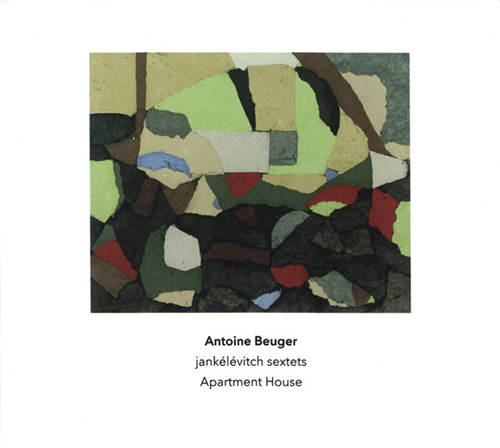



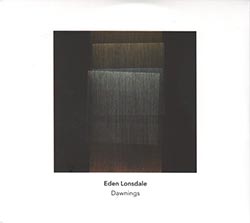


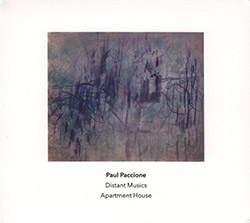


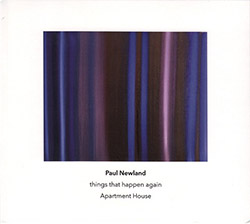

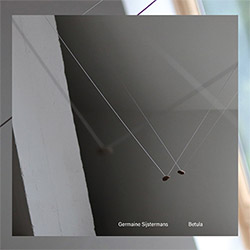
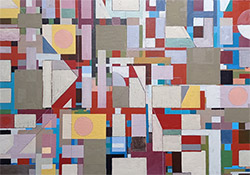


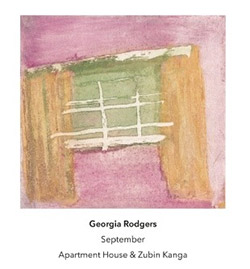
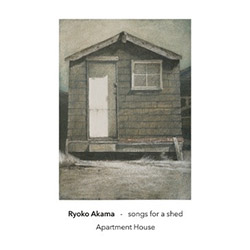
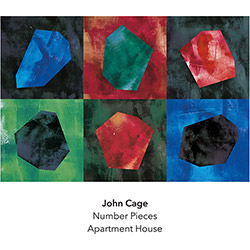

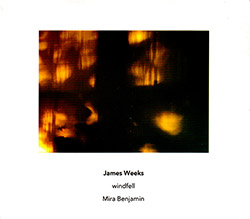

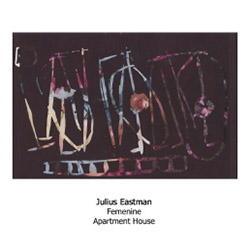
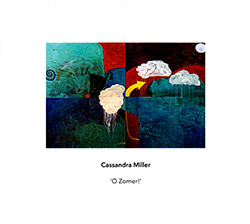









![+DOG+: The Light Of Our Lives [2 CDs]](https://www.teuthida.com/productImages/misc4/36009.jpg)


![Parker, Evan / Jean-Marc Foussat: Insolence [VINYL]](https://www.teuthida.com/productImages/misc4/36398.jpg)










![Deupree, Jerome / Sylvie Courvoisier / Lester St. Louis / Joe Morris: Canyon [2 CDs]](https://www.teuthida.com/productImages/misc4/36404.jpg)


![Eternities: Rides Again [CASSETTE]](https://www.teuthida.com/productImages/misc4/36247.jpg)

![Lopez, Francisco: Untitled (2021-2022) [2 CDs]](https://www.teuthida.com/productImages/misc4/36438.jpg)




![Eventless Plot | Haarvol: The Subliminal Paths [CASSETTE + DOWNLOAD]](https://www.teuthida.com/productImages/misc4/36232.jpg)







![Eventless Plot | Francesco Covarino: Methexis [CASSETTE + DOWNLOAD]](https://www.teuthida.com/productImages/misc4/36231.jpg)



![Das B (Mazen Kerbaj / Mike Majkowski / Magda Mayas / Tony Buck): Love [VINYL]](https://www.teuthida.com/productImages/misc4/36329.jpg)



![Hemphill Stringtet, The: Plays the Music of Julius Hemphill [VINYL]](https://www.teuthida.com/productImages/misc4/36409.jpg)









![Money : Money 2 [2 CDs]](https://www.teuthida.com/productImages/misc4/35894.jpg)




![Klinga, Erik: Elusive Shimmer [VINYL]](https://www.teuthida.com/productImages/misc4/36258.jpg)
![CHANGES TO blind (Phil Zampino): Volume 9 - I Wave on a Fine Vile Mist [CD + DOWNLOAD]](https://www.teuthida.com/productImages/misc4/36061.jpg)

![Wallmart / Rubbish: Asset Protection [split CD]](https://www.teuthida.com/productImages/misc4/35900.jpg)


![+Dog+: The Family Music Book Vol. 5 [2 CDs]](https://www.teuthida.com/productImages/misc4/35897.jpg)
![Kuvveti, Deli : Kuslar Soyledi [CASSETTE w/ DOWNLOAD]](https://www.teuthida.com/productImages/misc4/36107.jpg)

![Nakayama, Tetsuya: Edo Wan [CASSETTE w/ DOWNLOAD]](https://www.teuthida.com/productImages/misc4/36105.jpg)

![Brown, Dan / Dan Reynolds: Live At The Grange Hall [unauthorized][CASSETTE]](https://www.teuthida.com/productImages/misc4/36245.jpg)






![Palestine, Charlemagne / Seppe Gebruers: Beyondddddd The Notessssss [VINYL]](https://www.teuthida.com/productImages/misc4/36206.jpg)
![Palestine, Charlemagne / Seppe Gebruers: Beyondddddd The Notessssss [NEON GREEN VINYL]](https://www.teuthida.com/productImages/misc4/36207.jpg)

![Laubrock, Ingrid: Purposing The Air [2 CDs]](https://www.teuthida.com/productImages/misc4/35639.jpg)

![Yoko, Ono / The Great Learning Orchestra: Selected Recordings From Grapefruit [2 CDs]](https://www.teuthida.com/productImages/misc4/35841.jpg)








![Zorn, John / JACK Quartet: The Complete String Quartets [2 CDs]](https://www.teuthida.com/productImages/misc4/35609.jpg)


![Sorry For Laughing (G. Whitlow / M. Bates / Dave-Id / E. Ka-Spel): Rain Flowers [2 CDS]](https://www.teuthida.com/productImages/misc4/35985.jpg)

![Rolando, Tommaso / Andy Moor : Biscotti [CASSETTE w/ DOWNLOADS]](https://www.teuthida.com/productImages/misc4/36106.jpg)


![Electric Bird Noise / Derek Roddy: 8-10-22 [CD EP]](https://www.teuthida.com/productImages/misc4/35970.jpg)








![Elephant9 : Mythical River [VINYL]](https://www.teuthida.com/productImages/misc4/34624.jpg)



![Elephant9 with Terje Rypdal: Catching Fire [VINYL 2 LPs]](https://www.teuthida.com/productImages/misc4/35355.jpg)
![Deerlady (Obomsawin, Mali / Magdalena Abrego): Greatest Hits [VINYL]](https://www.teuthida.com/productImages/misc4/34876.jpg)







![Surplus 1980: Illusion of Consistency [CD]](https://www.teuthida.com/productImages/misc4/35069.jpg)
![Staiano, Moe: Away Towards the Light [VINYL + DOWNLOAD]](https://www.teuthida.com/productImages/misc4/35037.jpg)
![Coley, Byron: Dating Tips for Touring Bands [VINYL]](https://www.teuthida.com/productImages/misc4/17906.jpg)

![Lost Kisses: My Life is Sad & Funny [DVD]](https://www.teuthida.com/productImages/misc4/lostKissesDVD.jpg)